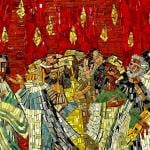Willem van Asselt’s Introduction to Reformed Scholasticism provides a superb overview of the history of Reformed Scholasticism, as well as a survey of the current state of the literature.
Early on, he emphasizes the “catholicity” of Reformed Scholasticism: “those who practiced it explicitly aimed to stand within the tradition of the entire church. They made no pretense of originality or of developing the ‘true doctrine.’ As students of the Reformers, they wanted to develop a theology in which there was a wide reflection on the core of the gospel with all its implications. They placed themselves in line with theology of all ages and engaged in theological reflection ‘together with all the saints.’” But they were not simply antiquarians either: “The Reformed Scholastics intended to contribute to the church’s continued existence into the future” (2).
Francis Turretin provides a good example. In discussing freedom of the will and necessity, he borrowed from Bernard of Clairvaux and Peter Lombard, mediated through Calvin, a notion of “three forms of freedom: freedom from necessity, freedom from sin, and freedom from misery” (160); the first is of the essence of human being, but the last two were lost through the fall. Though employing medieval sources, he also goes beyond them to introduce a sixfold analysis of necessity (161), which enables him to address the freedom of the will more subtly.
Though he doesn’t develop the point, he hints that this catholicity was in some tension with the demands of confessional churches, which “defined themselves by explicit and extensive doctrinal formulations,” often in opposition to Catholics and other Protestants (203). Van Asselt claims that the “confessionalization” thesis, however, is reductively sociological and doesn’t take sufficient account of the doctrinal seriousness of Protestants, for whom confessions were not merely identity markers (204). Still the tension between catholic aspiration and confessional loyalty remains.











